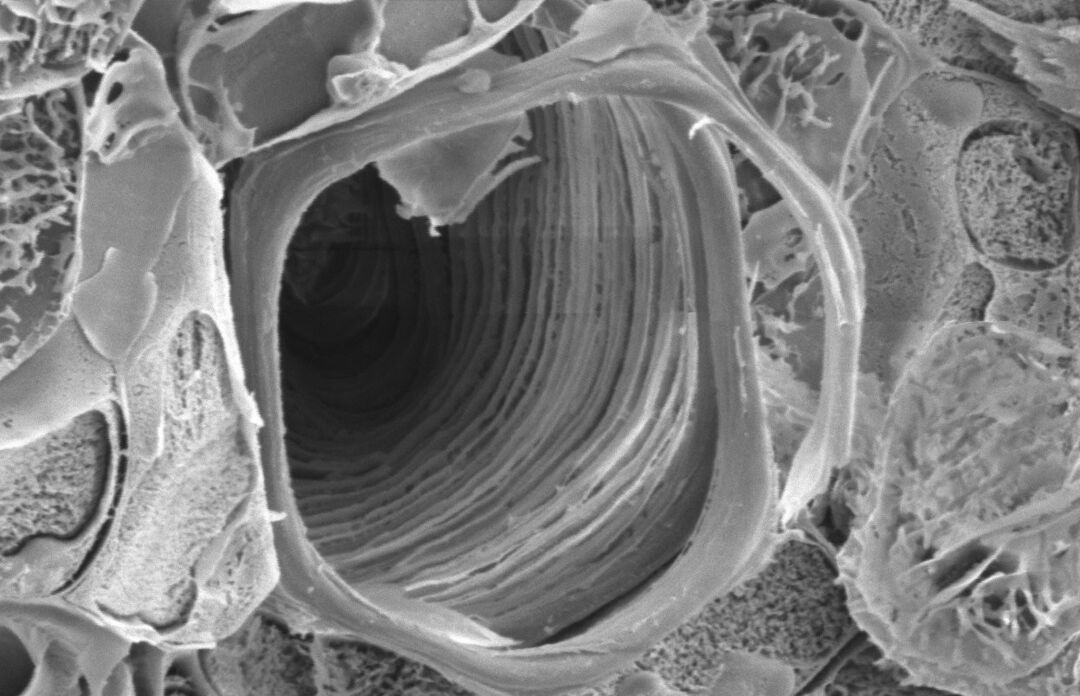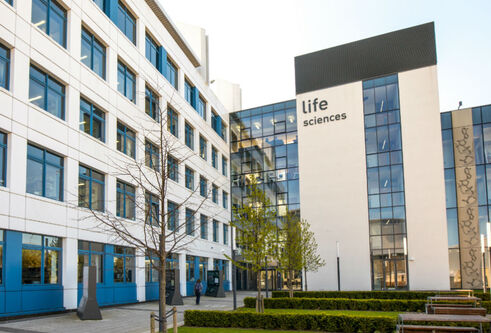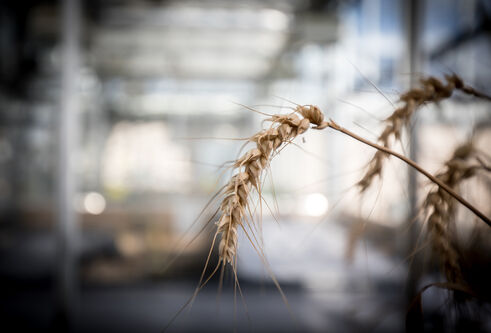Professor Claire HalpinFRSE FRSB
Chair of Plant Biology and Biotechnology
Plant Sciences, School of Life Sciences
Associate Dean Research

Contact
Research
My research focuses on lignin and cell wall biosynthesis and its manipulation to improve biomass properties for agricultural or industrial uses. I also maintain an active interest in enabling techniques for plant biotechnology and have developed strategies for multi-gene manipulation in plants.
Lignin is an essential component of many plant cell walls, where it waterproofs and rigidifies the structure, protecting it from degradation. This complicates the release of cell wall sugars during ruminant digestion and in the production of biofuels and chemicals in biorefineries. Nevertheless, lignin itself is a useful staring material for the production of certain valuable chemicals. Using plant biomass instead of fossil fuel petrochemicals as the feedstock for the production of our chemicals, plastics and fuels has the potential to reduce overall carbon dioxide emissions and mitigate climate change. Lignin, along with other cell wall components, is also crucial to the structural strength of plants. Inadequate structural strength can promote lodging in cereal crops where the stems fall over making the grain impossible to harvest easily. The strength of plant cell walls and the tissues they compose is therefore important to food security.
The lignin biosynthesis pathway has been well-studied but is still yielding surprises and some important basic features are poorly understood. The spatial organisation of the pathway, how it is regulated, and how it coordinates with other aspects of cell wall development and wider plant metabolism, are areas of current research. We use a variety of both forward and reverse genetic approaches to better understand lignin and cell wall biosynthesis, including CRISPR approaches. Most of our work focusses on cereal crops such as barley, wheat and rice, or the model plant, Arabidopsis. We also take a more agnostic approach to understanding the determinants of biomass properties using Genome Wide Association Studies in barley and rice, working with colleagues at The James Hutton Institute (where our labs are based), and with international collaborators.

Research interests
- Manipulation of plant metabolism and biomass properties
- Lignin and cell wall biosynthesis
- Plant multi-gene engineering
- Cereal genetics and biotechnology
Media availability
I am available for media commentary on my research.
Lignin and cell wall biosynthesis and manipulation to improve biomass properties for agricultural or industrial uses
Contact Corporate Communications for media enquiries.
Areas of expertise
- Carbon footprint
- Climate change
- Energy
- Environment
Awards
| Award | Year |
|---|---|
| Fellow of the Royal Society of Edinburgh | 2014 |
| National Sciences Prizes awarded since 1990 / Royal Society Wolfson Research Merit Award | 2014 |
| Fellow of the Royal Society of Biology | 2011 |
Stories
Press release
It may be known as the basis of whisky but scientists at two of Scotland’s leading scientific institutions have been tasked with distilling a new future for barley.

Feature
Crop genomics for food security, sustaining human and environmental health

News
Ethiopia's National Barley Research Program Coordinator, has started a PhD in Dundee.